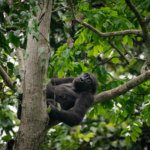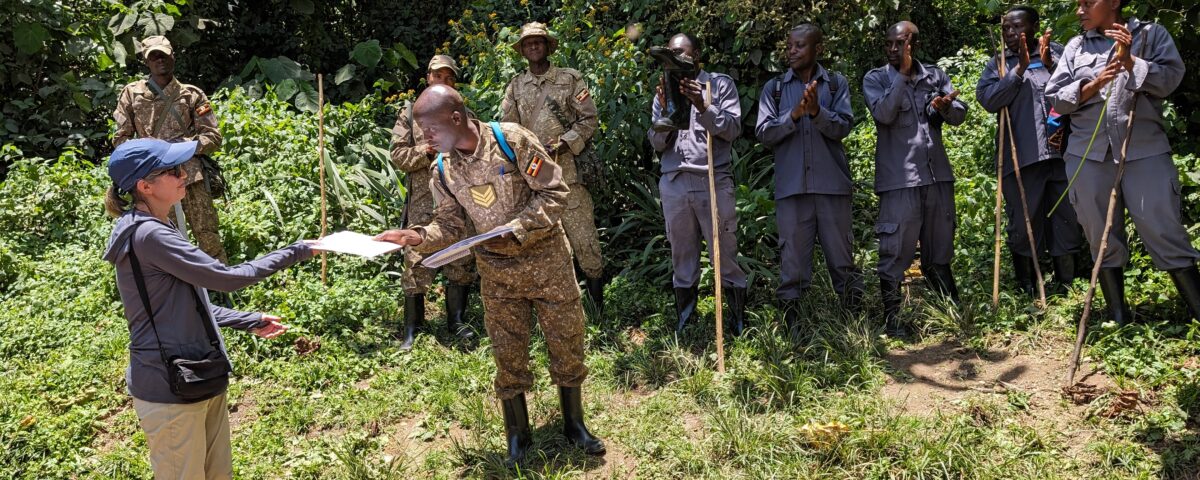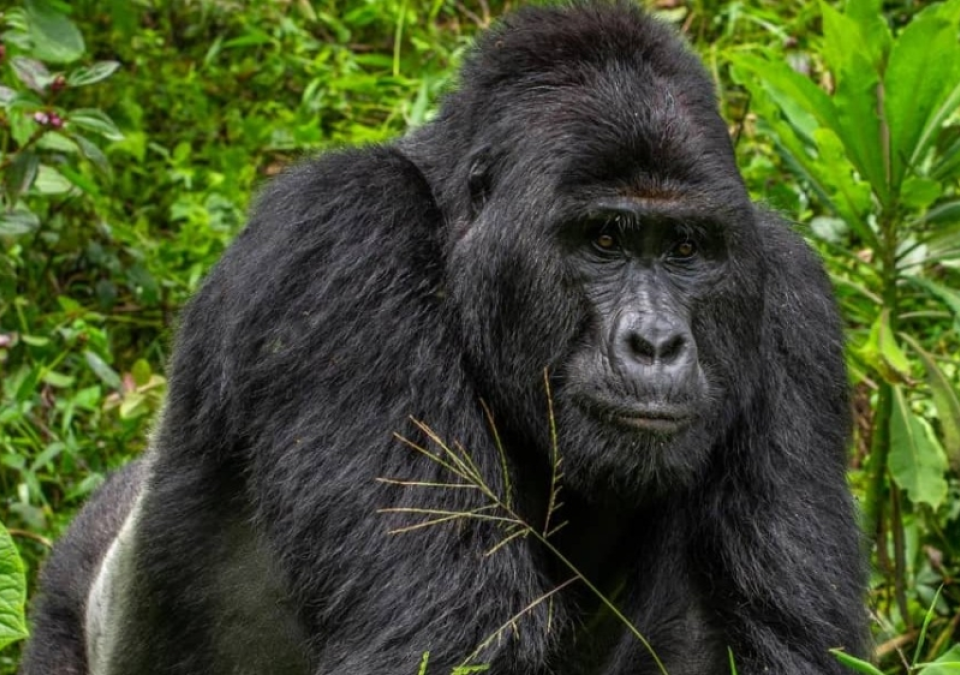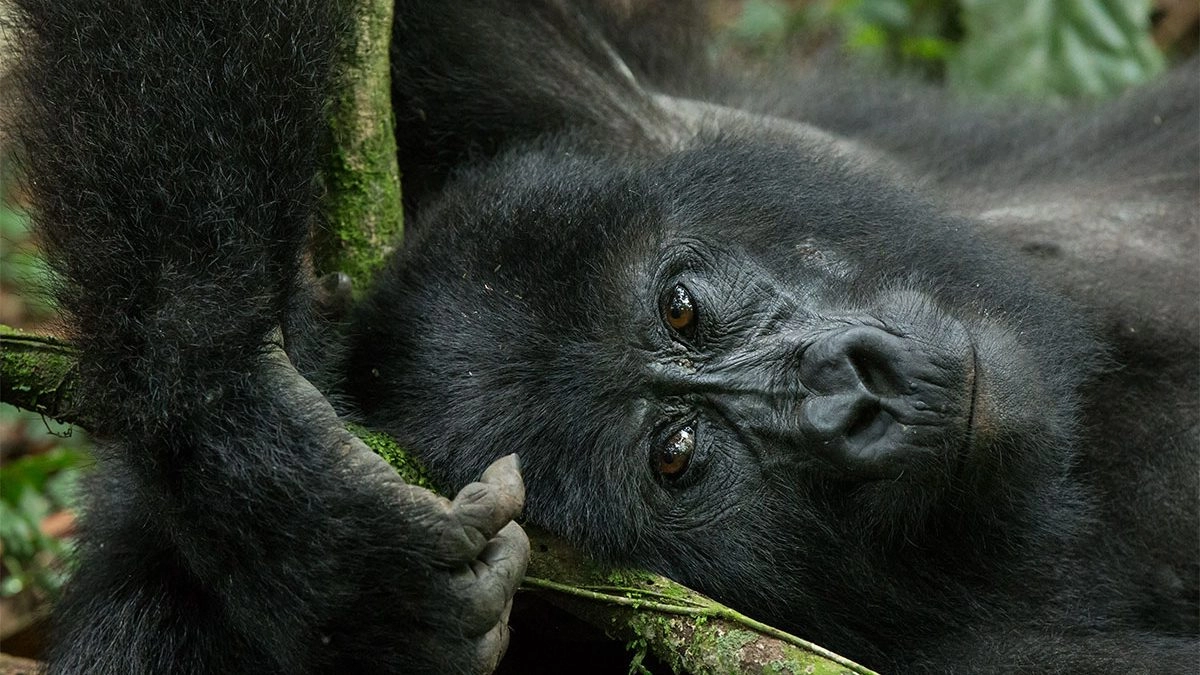
Is a Porter Necessary During Uganda Gorilla Habituation Safari?
June 25, 2025
Is Uganda Gorilla Habituation Safe?
June 25, 2025Is It Ethical to Participate in Gorilla Habituation?
When considering embarking on an extraordinary Uganda Gorilla Habituation Safari, a thoughtful question arises: “Is it ethical to participate in gorilla habituation?” This query is essential not only for conscientious travelers but also for anyone passionate about wildlife conservation and sustainable tourism. At Ovacado Adventures, we believe that understanding the ethical framework behind Gorilla Habituation Safaris Experience empowers travelers to make informed decisions that benefit both wildlife and local communities.
What Does Ethical Gorilla Habituation Mean?
Gorilla habituation is a carefully managed process that allows wild mountain gorillas to gradually become accustomed to the presence of humans. But is it ethical to participate in gorilla habituation? The short answer is yes, and here’s why. The Uganda Wildlife Authority (UWA), together with conservation partners, oversees habituation as a regulated conservation activity with stringent guidelines designed to protect the gorillas’ welfare and habitat.
Every Gorilla Habituation Tour operates under strict limits on group size, visitor time, and distance from the gorillas to minimize stress and human impact. By following these protocols, habituation not only provides a rare window into gorilla behavior but also plays a vital role in research, monitoring, and anti-poaching efforts.
Through your participation in a Bwindi Gorilla Habituation Safari or other habituation experiences, you directly contribute to the sustainability of gorilla populations and the forest ecosystems they inhabit.
How Does Participating in Gorilla Habituation Support Conservation?
One of the most compelling reasons to consider gorilla habituation tours as ethical is their significant role in funding conservation. When you ask, “Is it ethical to participate in gorilla habituation?” it’s important to recognize that permit fees and safari costs are reinvested into protecting these endangered primates.
Funds generated from Uganda Gorilla Habituation Safaris support anti-poaching patrols, veterinary health checks, and ongoing scientific research that help monitor gorilla health and behavior. Importantly, this revenue also benefits local communities by financing education, healthcare, and sustainable livelihood projects, which foster goodwill toward conservation.
By joining a Uganda Gorilla Habituation Experience, you become an active stakeholder in a larger conservation model that balances wildlife protection with community empowerment — a model that Ovacado Adventures proudly endorses and facilitates.
What Ethical Considerations Should Visitors Keep in Mind?
To ensure that your Uganda Gorilla Habituation Tour remains ethical and sustainable, it is vital to adhere to established guidelines during the safari. Many travelers ask, “What responsibilities do I have during gorilla habituation safaris?”
Visitors must maintain a safe distance from gorillas, limit contact time (usually up to four hours), and follow their guide’s instructions carefully to avoid disturbing the animals. Avoid wearing strong scents, sudden movements, or loud noises that could stress the gorillas.
Health is another ethical concern: participants should not visit if they have respiratory illnesses, as gorillas are susceptible to human diseases. This protocol protects both the gorillas and future tourists.
At Ovacado Adventures, we educate all guests about these ethical practices to ensure that every 1-Hour Gorilla Habituation Safari or extended habituation experience contributes positively to conservation and animal welfare.
How Do Gorilla Habituation Safaris Benefit Local Communities?
The question “Is it ethical to participate in gorilla habituation?” extends beyond wildlife to people who live alongside the gorillas. Local communities in and around Bwindi and Mgahinga receive substantial benefits from habituation tourism.
By purchasing permits for a Gorilla Habituation Fly-in Safari or a classic ground-based habituation tour, you help generate income that supports schools, health clinics, and infrastructure development. These community benefits reduce dependence on forest resources, thereby decreasing illegal activities like poaching and logging.
Ovacado Adventures incorporates cultural visits to Batwa communities and other local groups into many itineraries, fostering respectful exchange and helping travelers understand the symbiotic relationship between conservation and community welfare.
Can Ethical Gorilla Habituation Be Combined with Other Uganda Safari Experiences?
Is it possible to combine an ethical Uganda Gorilla Habituation Safari with other safari activities? Absolutely. Responsible travelers often ask, “How can I create a sustainable safari itinerary that includes gorilla habituation and more?”
Ovacado Adventures offers bespoke packages combining Gorilla Habituation Safaris with chimpanzee tracking, game drives in Queen Elizabeth National Park, or cultural tours, allowing you to experience Uganda’s biodiversity ethically and comprehensively.
This approach ensures your entire safari aligns with conservation principles, supports local livelihoods, and enriches your understanding of Uganda’s natural and cultural heritage.
Why Choose Ovacado Adventures for Your Ethical Gorilla Habituation Safari?
Choosing Ovacado Adventures guarantees more than a trip; it guarantees an ethical, expertly guided Uganda Gorilla Habituation Experience designed with integrity. Our team has extensive knowledge of conservation protocols and sustainable tourism practices that protect gorillas and empower communities.
We collaborate closely with Uganda Wildlife Authority and local partners to ensure all habituation safaris meet the highest standards of animal welfare and environmental responsibility. From personalized planning to on-site guidance, we maintain transparency and trustworthiness throughout your journey.
Is It Ethical to Participate in Gorilla Habituation? Absolutely.
To conclude, the question “Is it ethical to participate in gorilla habituation?” is best answered with a confident yes. When conducted responsibly, gorilla habituation is a vital conservation activity that protects endangered mountain gorillas, funds critical research, and uplifts local communities.
Ovacado Adventures invites you to experience the wonder of gorilla habituation in Uganda, knowing that your visit contributes positively to preserving these magnificent creatures. Together, we can ensure that future generations continue to witness the magic of the Bwindi Gorilla Habituation Safari and beyond.
For expert advice, booking assistance, or to create a fully ethical Uganda Gorilla Habituation Tour tailored to your needs, contact Ovacado Adventures today.




